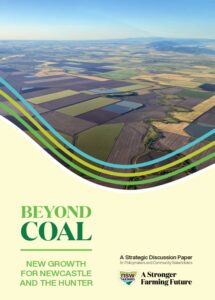
Gina Rinehart, Australia’s wealthiest person, is making headlines with her bold proposal to develop a coalmine in Canada’s Rocky Mountains. This initiative has ignited significant discussion about environmental policies both locally and internationally, and it highlights Rinehart’s long-standing beliefs influenced by her early reading of Ayn Rand’s Atlas Shrugged.
At the age of 13, Rinehart was profoundly impacted by Rand’s work, which champions individualism and capitalism. The novel’s core message emphasizes the importance of personal ambition and industrial success, values that Rinehart has embodied throughout her career in mining and resource development. Her recent plans for a coal project in Canada reflect this perspective, as she aims to contribute to the global energy market.
Environmental Concerns and Industry Perspectives
Rinehart’s proposal has drawn scrutiny from various environmental advocates, including renowned author and environmental campaigner Tim Winton. Winton has expressed concerns regarding the potential impact of such projects on Australia’s environmental laws, which are currently under review. He argues that the expansion of coal mining is at odds with the urgent need to address climate change and protect natural ecosystems.
In a statement, Winton emphasized the importance of sustainable practices, arguing that the focus should be on transitioning to renewable energy sources rather than investing in fossil fuels. His views reflect a growing sentiment among environmentalists who are calling for stricter regulations to safeguard the environment.
The debate surrounding Rinehart’s project is indicative of a larger conflict between economic interests and environmental sustainability. As countries transition towards greener energy solutions, proposals like Rinehart’s can provoke a reevaluation of existing policies. Advocates for coal argue that it remains a vital resource for energy production, particularly in regions where alternative energy sources are not yet viable.
A Broader Implication for Australia’s Resource Industry
Rinehart’s intentions extend beyond Canada, raising questions about Australia’s role in global resource extraction and energy production. With the country being one of the largest exporters of coal, the implications of her actions could potentially influence international energy markets and trade relations.
The ongoing discussions about her proposal also highlight the tension within Australia regarding resource management. As the nation grapples with the dual challenges of economic growth and environmental preservation, Rinehart’s plans may serve as a litmus test for the future direction of both the mining industry and environmental policy.
This situation exemplifies the complexities of balancing industrial ambitions with ecological stewardship. Rinehart’s commitment to her vision, rooted in the philosophies of capitalism and individualism, might resonate with many in the business community. Meanwhile, environmentalists like Winton are steadfast in their advocacy for a more sustainable approach to resource management.
As this story unfolds, the outcomes of Rinehart’s proposal could have lasting implications for both Canada and Australia, influencing not only economic policies but also the global conversation on climate change and environmental responsibility.







